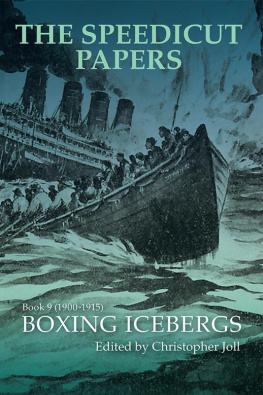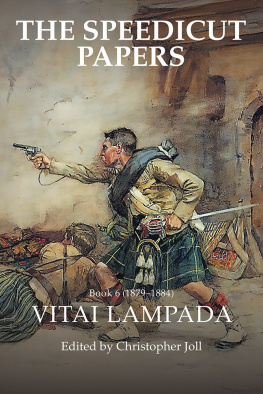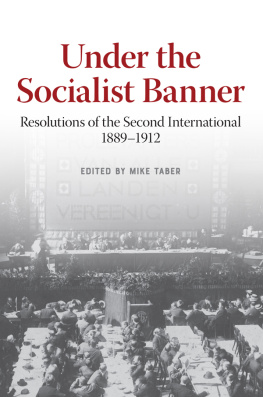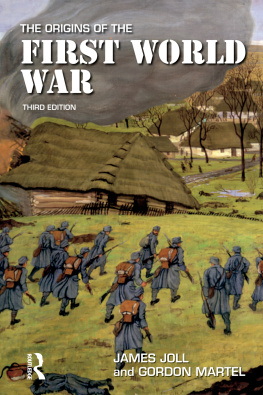James Joll - The Second International, 1889-1914
Here you can read online James Joll - The Second International, 1889-1914 full text of the book (entire story) in english for free. Download pdf and epub, get meaning, cover and reviews about this ebook. year: 1968, publisher: Weidenfeld & Nicolson, genre: Politics. Description of the work, (preface) as well as reviews are available. Best literature library LitArk.com created for fans of good reading and offers a wide selection of genres:
Romance novel
Science fiction
Adventure
Detective
Science
History
Home and family
Prose
Art
Politics
Computer
Non-fiction
Religion
Business
Children
Humor
Choose a favorite category and find really read worthwhile books. Enjoy immersion in the world of imagination, feel the emotions of the characters or learn something new for yourself, make an fascinating discovery.

- Book:The Second International, 1889-1914
- Author:
- Publisher:Weidenfeld & Nicolson
- Genre:
- Year:1968
- Rating:3 / 5
- Favourites:Add to favourites
- Your mark:
- 60
- 1
- 2
- 3
- 4
- 5
The Second International, 1889-1914: summary, description and annotation
We offer to read an annotation, description, summary or preface (depends on what the author of the book "The Second International, 1889-1914" wrote himself). If you haven't found the necessary information about the book — write in the comments, we will try to find it.
The Second International, 1889-1914 — read online for free the complete book (whole text) full work
Below is the text of the book, divided by pages. System saving the place of the last page read, allows you to conveniently read the book "The Second International, 1889-1914" online for free, without having to search again every time where you left off. Put a bookmark, and you can go to the page where you finished reading at any time.
Font size:
Interval:
Bookmark:
James Joll
FELLOW OF ST ANTONY'S COLLEGE OXFORD
'It is not an easy job. It is easy to go wrong. It is abominably easy to mistake shams for realities.'
H. G. WELLS
PRAEGER: NEW YORK
-vii-
Published in the United States of America in 1956 by Frederick A. Praeger, Inc., Publishers, 150 E. 52nd Street , New York 22, N. Y.
PRINTED IN GREAT BRITAIN BY THE SHENVAL PRESS LONDON, HERTFORD AND HARLOW
-viii-
| ACKNOWLEDGMENTS | ||||||||
INTRODUCTION
| ||||||||
| APPENDIX: THE STUTTGART RESOLUTION | ||||||||
| SELECT BIBLIOGRAPHY | ||||||||
| INDEX |
-ix-
| 'ber fnfzig Jahr hab i fr die Internationale gekmpft, und heut ist mei oanzige Freud mei Hoamgartl' (I've fought for the International for fifteen years and now my only pleasure is my allotment.) Cartoon by Karl Arnold, Munich 1933Frontispiece |
| 1. Wilhelm Liebknecht facing pages |
| 2. August Bebel |
| 3. Jean Jaurs towards the end of his life |
| 4. Jaurs speaking at a public meeting during the Stuttgart Congress, 1907. Seated at the table Karl Kautsky (left) and Paul Singer |
| 5. Rosa Luxemburg |
| 6. Victor Adler |
| 7. Friedrich Adler |
| 8. Plenary session of the Amsterdam Congress, 1904 |
| 9. Amsterdam Congress, 1904 |
-x-
I am very grateful to those survivors from the pre- 1914 socialist movement who were kind enough to spare time to talk to me: the late President Karl Renner, Monsieur Bracke- Desrousseaux and Dr Friedrich Adler. I should also like to thank, among others, Herr Willi Eichler, Dr Oskar Pollak and Herr Wenzel Jaksch for arousing my curiosity in European socialism: M. Etienne Weill-Raynal, M. Paul Louis, Herr Walter Hacker, Professor G. D. H. Cole, Mr Isaiah Berlin, Mr Asa Briggs, Mr Denis Healey MP, and Professor Carl Schorske for help on many points: and Mr Patrick Gardiner for reading the proofs. Dr Gerhard Ritter ( Berlin) was good enough to read certain chapters and to let me see an unpublished dissertation on German social democracy in the 1890s. Mr J. W. Wheeler- Bennett kindly allowed me to make use of an unpublished essay dealing with events in 1914. I am also indebted to the Director and Librarian of the International Institute of Social History, Amsterdam, for the loan of photographs, and to Herr Klaus Arnold for permission to reproduce the drawing by his father, Karl Arnold. My chief debt is to those institutions of which I have been a member while writing this book--the Institute for Advanced Study, Princeton, New Jersey, and St Antony's College, Oxford.
-xi-
-xii-
There are a number of reasons why it seems worth while to attempt a history of the international aspects of Socialism between 1889, the year of the founding of the Second International, and 1914, when the unity of Socialists everywhere, in which so many hopes had been placed, was shown to be a sham. First of all, as in any historical episode, there is the interest of the personalities involved and their reaction to the problems presented to them. For at least fifty years international Socialism was one of the great intellectual forces in Europe; and the movement included at various times people as striking and as diverse as Lenin and Bernard Shaw, Rosa Luxemburg and William Morris, Jean Jaurs and Benito Mussolini, while no statesman or political thinker could avoid taking it into account.
Secondly, and it is from this angle that the question has most frequently been studied, it is in the Second International that the Third had its roots. Its weaknesses and mistakes contributed to the rise of Communism; its doctrinal discussions were the link between the original teachings of Marx and the 'Marxism- Leninism' which is the official creed of some nine hundred million people today.
Finally, Social Democracy was a genuinely international force. It was believed that certain problems were common to the parties which were members of the Second International and that they could be met by common solutions. Thus the tactical behaviour and the theoretical beliefs of one Socialist party often had a profound influence on other parties; and, indeed, one of the main themes of the history of the Second
-1-
International is the imposition by the strongest Socialist party of Europe, the German Social Democratic Party, of doctrines and tactics on other parties, notably the French, with, it may be thought, disastrous consequences to the whole subsequent development of French social and political life. Moreover, the Second International before 1914 represented large numbers of people all over Europe who believed that it would be possible to prevent war by international action against it; and the story of the failure of the Second International to do this is both pathetic and instructive.
This book does not set out to be a history of the Socialist parties of Europe. Nor is it a history of the development of Socialist political theory. For this reason very little is said about the rise of the Labour Party in England, and still less about the socialist movement in the United States. The British Labour Party has always stood apart from the other European Socialist parties: it has been fortunate in that the concept of the class struggle has rarely been applicable to day to day English political life; and it has been mercifully free from the squabbles about doctrine that took up so much time at the conferences of the continental, and especially the German, parties. The British Labour movement was represented in the International; the 1896 International Congress was held in London; individuals, notably James Keir Hardie, played a big part in international discussions. But the Labour Party was never revolutionary and never Marxist, except for minorities like the Social Democratic Federation and its later offshoots which had, perhaps for that reason, an exaggerated importance in foreign eyes.
____________________-2-
Indeed, a study of the Second International must be mostly concerned with the French and German Socialist parties and their interaction. It is in part the story of the influence of German Socialism on the rest of Europe, of French attempts to resist it in the interest of a different tradition, and of the final powerlessness of the German Social Democrats to prevent a war against France in 1914. Just as the First International had collapsed because of Marx's attempts to dominate it and just as the Third International was to end as a tool of the government of the Soviet Union, so the Second International was to succumb to the efforts, however well intentioned, of the German Socialists to impose their theories and rules of action (or inaction) on the other member parties. In the First International the tyranny was only doctrinal: it could have little effect on practical politics. But once socialism began to be the creed of mass parties, decisions about doctrine and tactics affected political development more widely. The disastrous effects of the Russian Communist Party's intervention in the affairs of other members of the Third International are well-known; but it could perhaps be argued that the influence of German Socialism on other Social Democratic parties in the Second International was nearly as unfortunate, retarding, for example, the development of a specifically French Socialism, excluding some of the ablest men in the Third Republic from office for many years, and encouraging a rigid Marxism in the trammels of which an important section of the French Socialist Party has been caught up to the present day. For those who like to see political issues in personal terms, Jaurs and Bebel can be regarded as the protagonists not only of two rival forms of Socialism, but also of two different ways of looking at politics.
Font size:
Interval:
Bookmark:
Similar books «The Second International, 1889-1914»
Look at similar books to The Second International, 1889-1914. We have selected literature similar in name and meaning in the hope of providing readers with more options to find new, interesting, not yet read works.
Discussion, reviews of the book The Second International, 1889-1914 and just readers' own opinions. Leave your comments, write what you think about the work, its meaning or the main characters. Specify what exactly you liked and what you didn't like, and why you think so.





